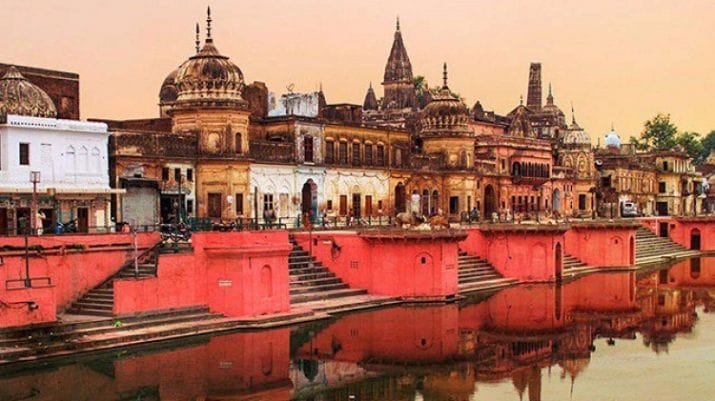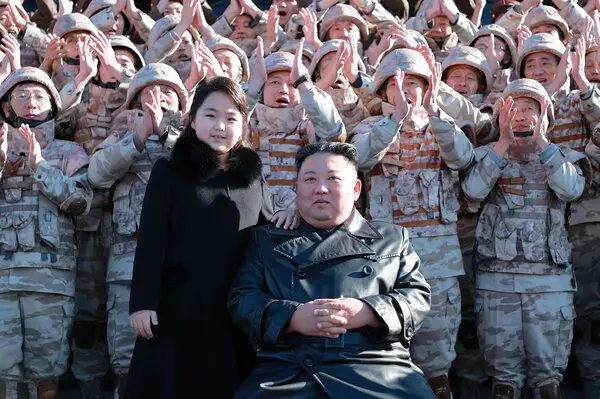Judgement of the Supreme Court of India in the Ayodhya Case

The Supreme Court of India delivered judgement on 9 November 2019 on the long-standing Ram Janmbhoomi (Lord Rama’s birthplace) -Babri Mosque dispute in Ayodhya, India.
The dispute goes back centuries and had been a subject of judicial processes since the 1880s during the British colonial rule. It pertains to a mosque built in 1528 by Mir Baqi, a General under Mughal ruler Babur, who had established the Mughal rule in in Delhi in 1526, at a site believed by devout to be the birthplace of Lord Ram and where a Hindu shrine is alleged to have existed.
The site remained a source of dispute, legal claims and social tensions since Independence in India, culminating in the demolition of Babri Masjid in December 1992.
A five-member bench of the Supreme Court, heard by the Hon’ble Chief Justice of India, heard the case. The Judgment is solely to determine the Title Suit (i.e. ownership) of land in Ayodhya (1482 sq.yds.) on which the structure was located.
The five Member Bench has given the Title Suit to Ram Lalla Virajman (one of the claimant Parties) and also directed the Government to allocate five acres of land in Ayodhya to the other Party, Sunni Wakf Board, for purpose of building a Mosque.
The Central Government shall, within a period of three months from the date of this judgment, formulate a scheme pursuant to the powers vested in it under Sections 6 and 7 of the Acquisition of Certain Area at Ayodhya Act 1993. The scheme shall envisage the setting up of a trust with a Board of Trustees or any other appropriate body. Possession of the disputed property shall continue to vest in the statutory receiver under the Central Government, until in exercise of its jurisdiction under Section 6 of the Ayodhya Act of 1993, a notification is issued vesting the property in the trust or other body.
1
The Sunni Wakf Board will be handed over 5 acres of suitable land in Ayodhya from land acquired under the Ayodhya Act 1993; or by the State Government at a suitable prominent place in Ayodhya.
The judgment is the culmination of a long-standing legal process and brings closure to a long-standing dispute between the litigants.
This legal process began in 1950 in the District Court, and as per standard procedural practice, the Allahabad High Court and now the Supreme Court of India have heard the matter. Thus, due process has been strictly followed.
This dispute originated in historical times. There are historical accounts by European travellers in the 17th and 18th centuries on the existence of the dispute. Probably, the first such reference to this dispute was made by William Finch, a British merchant who visited India between 1608 and 1611.
There are legal records to establish that petitions were filed before the District Judge and the Judicial Commissioner in the United Provinces in 1885-1886, when India was ruled by the British Colonial Government. Therefore, the dispute was in existence before the Independence of India.
In arriving at the Judgment, the Supreme Court of India has considered multiple pieces of evidence including, inter alia:
(a) Report of survey and excavation on the site carried out by Archaeological Survey of India.
(b) Historical records including pre-colonial travellers’ accounts and Government records from the British Colonial period; and
(c) The evidence and material presented by all claimants to Title Suit through the prolonged judicial process since the Independence of India.
The judgement will not be a precedent for litigation in any other religious place that might be or become disputed.
2
The Places of Worship (Special Provisions) Act 1991, passed by India’s Parliament, prohibits any change in the religious and denominational character of a place of worship as it existed on 15 August 1947 (our Independence). The Act solely excludes the existing disputed property in Ayodhya because it was already sub judice at that time. Hence, there is NO possibility of this Supreme Court Judgment relating to the land in Ayodhya becoming a legal precedent under the provisions of this Act. As such, the Judgement can NOT be used to seek or claim/re-claim other places of worship which may have been disputed.
The Constitution of India guarantees all religious communities in India equal freedoms of faith, belief and worship.
[Article 25 (1) Right to Freedom of Religion: Subject to public order, morality and health and to the other provisions of this Part, all persons are equally entitled to freedom of conscience and the right freely to profess, practice and propagate religion.]
India has a strongly independent judiciary and this independence is a part of the basic structure of the Constitution.
It is our conviction that following this verdict, Indians of all faiths and communities will now move ahead in a spirit of reconciliation.
Ahead of the pronouncement of judgement, Prime Minister Shri Narendra Modi has said the judgement should not be treated as a victory or defeat for any group. He has appealed to all citizens to accept the judgment and to strengthen our tradition of amity, unity and harmony.
Prominent voices in public life, including the All India Muslim Personal Law Board, have appealed to citizen to respect the judgment and to maintain calm.




